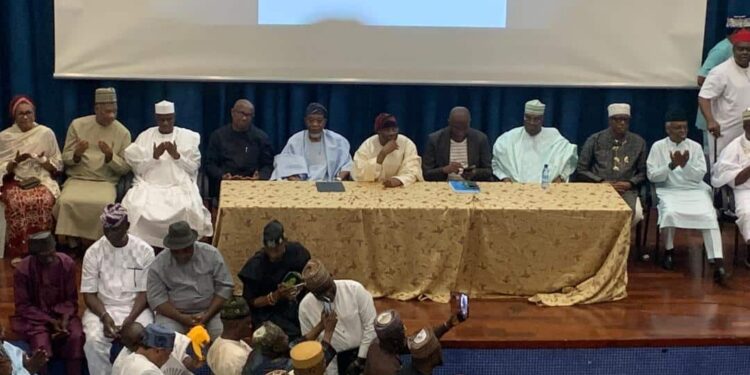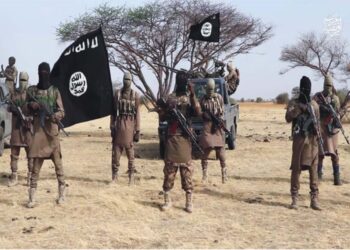The African Democratic Congress faces internal rebellion as its youth wing has categorically rejected the opposition coalition’s adoption of the party as a platform for the 2027 elections, describing the move as an unwelcome hijacking by discredited political figures.
The Youth Wing’s rejection represents a significant blow to the high-profile coalition that includes former Vice President Atiku Abubakar, ex-Senate President David Mark, and former governors Rotimi Amaechi, Nasir El-Rufai, and Peter Obi, who unveiled their alliance on Wednesday with great fanfare.
Musa Matara, spokesman for the ADC Youth Wing, delivered a scathing assessment of the coalition during a Thursday meeting in Abuja, characterizing the assembled political veterans as the architects of Nigeria’s current challenges rather than its potential solutions.
“The opposition coalition comprises the same old faces who spoiled the Nigerian government in the past,” Matara declared, rejecting the notion that these figures represent genuine change for Nigerian politics.
The youth leader questioned the ideological foundation of the coalition, suggesting that the assembled politicians lack the principled approach necessary for effective governance and meaningful reform.
“They are politicians with no ideology. ADC is a party of vision and values. We will not allow anybody to hijack what we have built,” Matara stated, positioning the youth wing as guardians of the party’s original mission and values.
The coalition had appointed David Mark as interim national chairman and former Interior Minister Rauf Aregbesola as secretary, presenting these appointments as legitimate party leadership changes endorsed by ADC structures.
However, Matara directly challenged the legitimacy of these appointments, questioning whether proper party procedures were followed in installing the new leadership structure.
“Who appointed this so-called interim chairman and secretary? Was it done by the National Executive Committee or the National Working Committee?” he asked, suggesting the coalition bypassed established party governance mechanisms.
The youth spokesman also disputed claims by a faction led by Raph Nwosu that all ADC executives had resigned to accommodate the coalition leadership, insisting that the party’s core membership remains intact and committed to existing structures.
“We are still in ADC. We don’t have any other party but ADC,” Matara emphasized, asserting the youth wing’s continuing allegiance to the party’s established leadership and direction.
While expressing openness to new members joining the ADC, Matara drew a clear distinction between welcoming additional supporters and allowing external forces to assume control of party operations.
“Let them come and join us if they want, but not take over,” he stated, offering conditional acceptance of coalition members while rejecting their leadership claims.
The internal opposition extends beyond the youth wing, with the party’s 2023 presidential candidate Dumebi Kachikwu also rejecting the coalition’s emergence and David Mark’s appointment as interim chairman.
Kachikwu characterized the development as a betrayal of Nigerian voters who supported the ADC based on its distinct political positioning and leadership.
“This is a disservice to Nigerians,” Kachikwu declared, suggesting that the coalition represents continuity rather than the change many Nigerians seek.
He further accused the coalition of being a calculated effort to restore Atiku Abubakar to power through rebranding rather than genuine political transformation.
“What we are witnessing is a desperate attempt to repackage failed politicians and deceive the electorate again,” Kachikwu stated, characterizing the coalition as political opportunism masquerading as reform.
The internal ADC resistance highlights the challenges facing opposition coalitions in Nigeria, where attempts to unite diverse political forces often encounter resistance from existing party structures and members committed to particular ideologies or leaders.
The youth wing’s rejection also reflects broader generational tensions within Nigerian politics, where younger activists often view established political figures with skepticism and demand more fundamental changes to political culture and governance approaches.
The coalition’s success now depends partly on its ability to resolve these internal conflicts within the ADC while maintaining the unity displayed during Wednesday’s launch event among its high-profile members.
Political observers note that the ADC’s internal divisions could weaken the coalition’s credibility and effectiveness, potentially undermining its ability to present a coherent alternative to President Tinubu’s administration in 2027.
The dispute also raises questions about the coalition’s decision-making processes and whether it adequately consulted existing ADC structures before announcing its adoption of the party as its political vehicle.



















